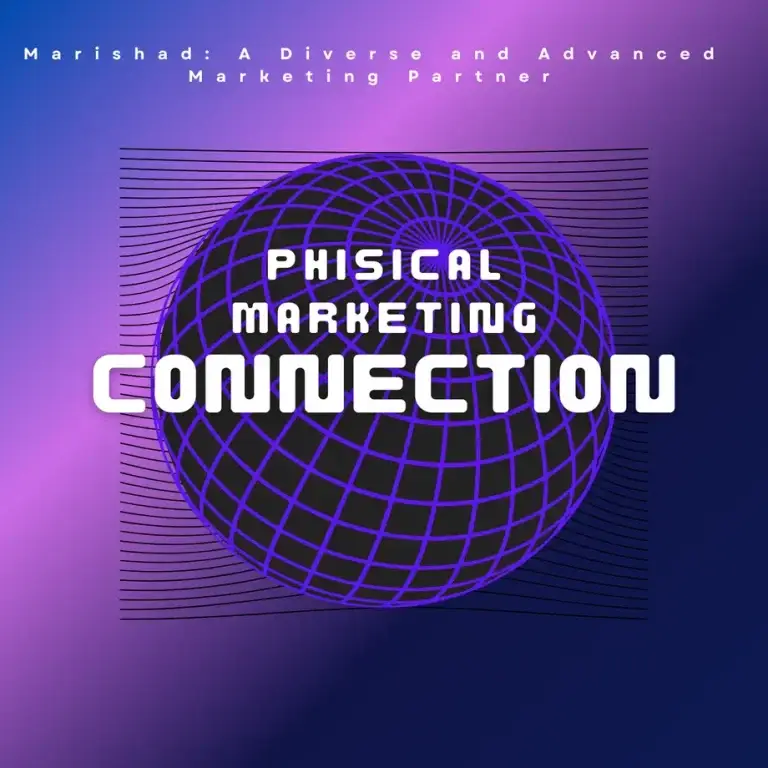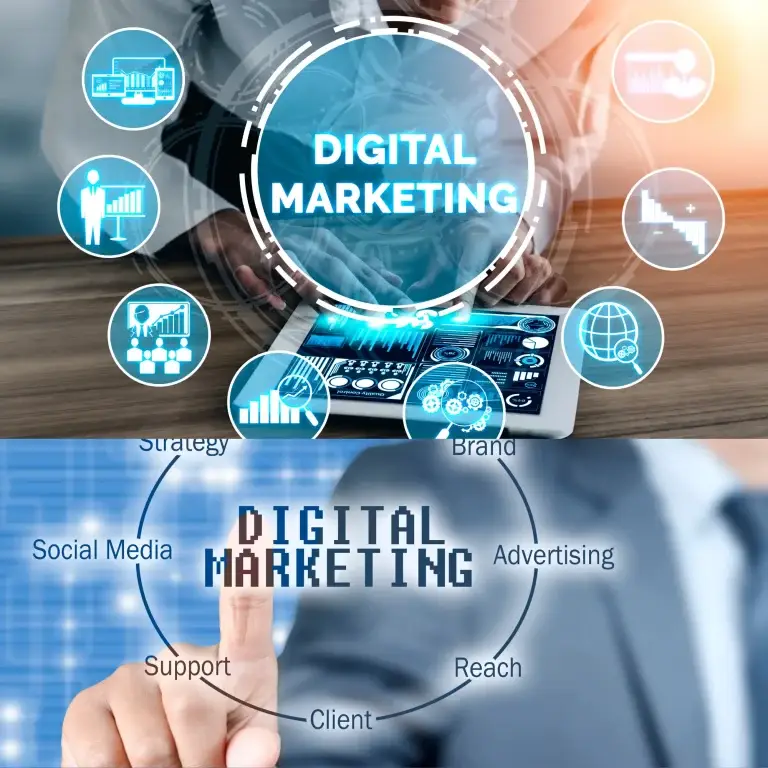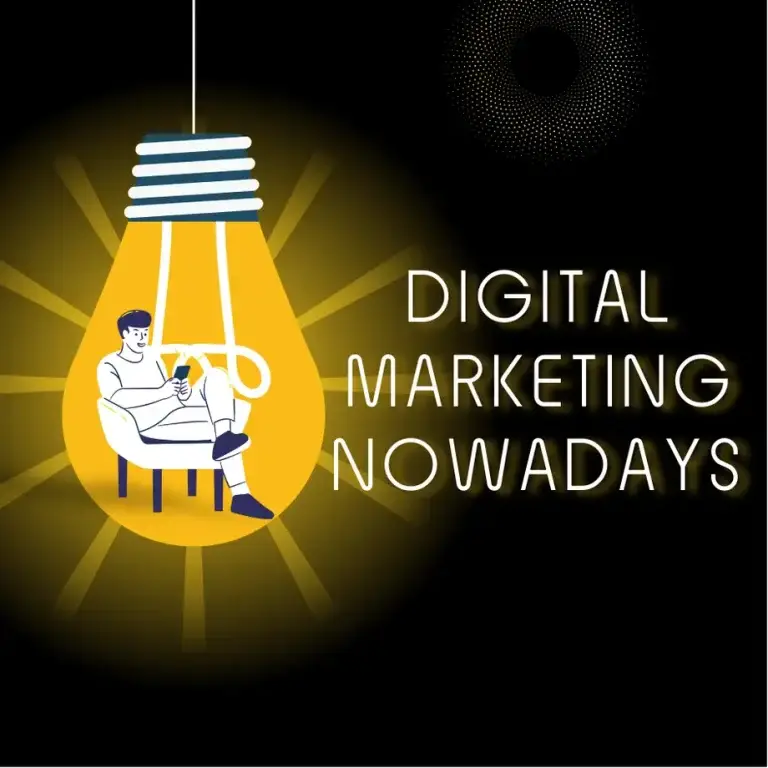Digital Marketing: A Comprehensive Guide to Success in the Online World
In today’s world, digital marketing has become one of the most effective ways to attract customers and expand businesses. With the advancement of technology and the widespread use of the internet, brands and businesses need to adapt their marketing strategies to the digital world. In this article, we will explore what digital marketing is, its benefits, types of methods, and the best practices for achieving success in this field.
What is Digital Marketing?
Digital marketing refers to a set of activities and strategies used to promote and advertise products or services through digital channels. These methods can include online advertising, social media marketing, email marketing, search engine optimization (SEO), and many other techniques. The goal of digital marketing is to create direct connections with the audience and increase sales through online platforms.

Benefits of Digital Marketing
Greater Accessibility: Given that most people today have internet access, digital marketing allows businesses to reach a larger audience.
Lower Costs: Compared to traditional marketing methods like TV or print advertising, digital marketing usually costs less while delivering better results.
More Accurate Measurement of Results: One of the major advantages of digital marketing is the ability to measure the results of advertising campaigns accurately. Tools like Google Analytics allow businesses to track how users interact with their content and when.
Targeted Marketing: Digital marketing allows businesses to display ads and content based on users’ specific interests and behaviors, making it highly personalized and effective.
Types of Digital Marketing Methods
SEO (Search Engine Optimization): SEO is the process of improving the ranking of your website on search engine results pages. By using relevant keywords, optimizing the website structure, and building backlinks, businesses can increase their website’s visibility.
Social Media Marketing: Platforms like Instagram, Facebook, LinkedIn, and Twitter are powerful tools for engaging with audiences. By creating engaging content and running targeted ads, businesses can build stronger connections with their customers.
Email Marketing: This method involves sending personalized emails to potential or existing customers. It is an effective way to keep audiences informed, offer promotions, and build customer loyalty.
Content Marketing: This strategy involves creating valuable, informative, and engaging content that attracts and retains an audience. Blog posts, videos, infographics, and podcasts are all types of content used in digital marketing to provide value to customers.
PPC (Pay-Per-Click) Advertising: PPC is an online advertising model where businesses pay a fee each time their ad is clicked. Google Ads and social media platforms like Facebook and Instagram offer PPC advertising options that help drive traffic to websites.
Affiliate Marketing: This is a performance-based marketing method where businesses pay affiliates a commission for driving traffic or sales through their referral links.
Influencer Marketing: Collaborating with influencers to promote products or services is another powerful digital marketing method. Influencers have large, dedicated audiences, which businesses can tap into for increased brand awareness.
Best Practices for Successful Digital Marketing
Know Your Audience: The foundation of any successful digital marketing campaign is understanding your audience. Use analytics tools to gather data about your customers’ preferences, behaviors, and needs.
Create Quality Content: Content is the backbone of digital marketing. Whether it’s blog posts, videos, or social media posts, creating valuable and engaging content will attract and retain customers.
Focus on SEO: A strong SEO strategy is essential for increasing your website’s visibility on search engines. Invest time in keyword research, content optimization, and technical SEO to improve your rankings.
Utilize Social Media Effectively: Choose the right social media platforms based on your target audience. Engage with followers by posting regularly, responding to comments, and using paid ads to increase your reach.
Monitor and Adjust Campaigns: Digital marketing offers the advantage of measuring results. Track the performance of your campaigns regularly and make adjustments based on the data to improve outcomes.
Embrace Automation: Marketing automation tools can help streamline tasks such as email marketing, social media posting, and ad management, saving time and improving efficiency.
Conclusion
Digital marketing is a dynamic and essential component of modern business strategies. By leveraging digital channels and tools effectively, businesses can reach a larger audience, lower their marketing costs, and achieve better results. Whether you’re focused on SEO, social media, or content creation, digital marketing offers endless opportunities for growth and success. Keep experimenting, tracking your results, and adapting to new trends to stay ahead of the competition.





